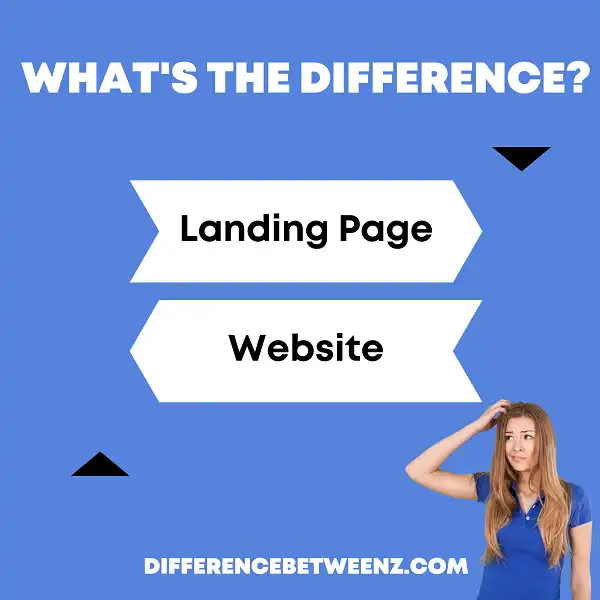For those who are looking to build an online presence, it can be difficult to decide between a website and landing page. It’s important that you understand the differences between both so that you can make the right decision for your business. A landing page is specifically designed with one primary objective in mind – to convert visitors into leads or customers – while a website provides content-rich pages on various topics related to your business and services. In this blog post, we will explore the major characteristics of each type of page as well as when it may be more appropriate to use each one based on different goals.
What is Landing Page?
Landing pages are an essential part of an online marketing plan. They provide a way to direct potential customers from advertisements, social media, search engine results, and other places on the internet to a customized page with the selling points of your product. Landing pages often have information about the product such as features, images, and descriptions that help to convince the user to purchase it.
Landing pages also give marketers invaluable insight into user behavior by tracking clicks and conversions – allowing for optimization for better performance. Landing page success can mean more sales for businesses of all sizes in any industry so it is worth understanding how they work and the best practices for creating one that is effective.
What is a Website?
- A website is a collection of related webpages, images, videos, or other digital assets that are hosted on a server and accessible over the internet. They can be used to provide information about a company, product, or service; to share stories, opinions, and perspectives; to drive online sales; or simply as an online brochure for business resources.
- Website technology has come a long way from the early days when websites were mostly static and text-based. Nowadays websites may be developed with sophisticated content management systems to give users more control over their website content in real-time; feature integrated social media platforms so they can better connect with people around the world; and use animation, video, interactive maps, and audio to enhance engagement.
- Website design also incorporates strong user experience principles such as intuitive navigation and streamlined elements so users have an enjoyable visit every time.
Difference between Landing Page and Website
Landing pages and websites may appear to be similar at first glance, but there are distinct differences between the two.
- Landing pages are single webpages dedicated to a specific purpose such as capturing an email address or selling a product.
- The priority with Landing Pages is to “convert” visitors into doing something such as buying a product or signing up for a service.
- That isn’t necessarily the case with websites, which generally exist more as an information destinations.
- Websites can include multiple pages, often focusing on topics with related content whereas Landing Pages focus on only one page of content that centers around one message being communicated.
Landing Pages are therefore much simpler and provide all the necessary information users need at once instead of forcing them through several different webpages to get it.
Conclusion
A website is a group of interconnected pages that typically contains your company’s branding, contact information, product or service descriptions, blog articles, and other types of content. A landing page is a single web page that’s designed with one specific goal in mind: to convert visitors into leads or customers. Although websites and landing pages have different purposes, they both need to be well-designed and user-friendly if you want people to stick around long enough to take the desired action. When it comes time to create or update your online presence, think carefully about which type of site will best suit your needs and help you achieve your business goals.


